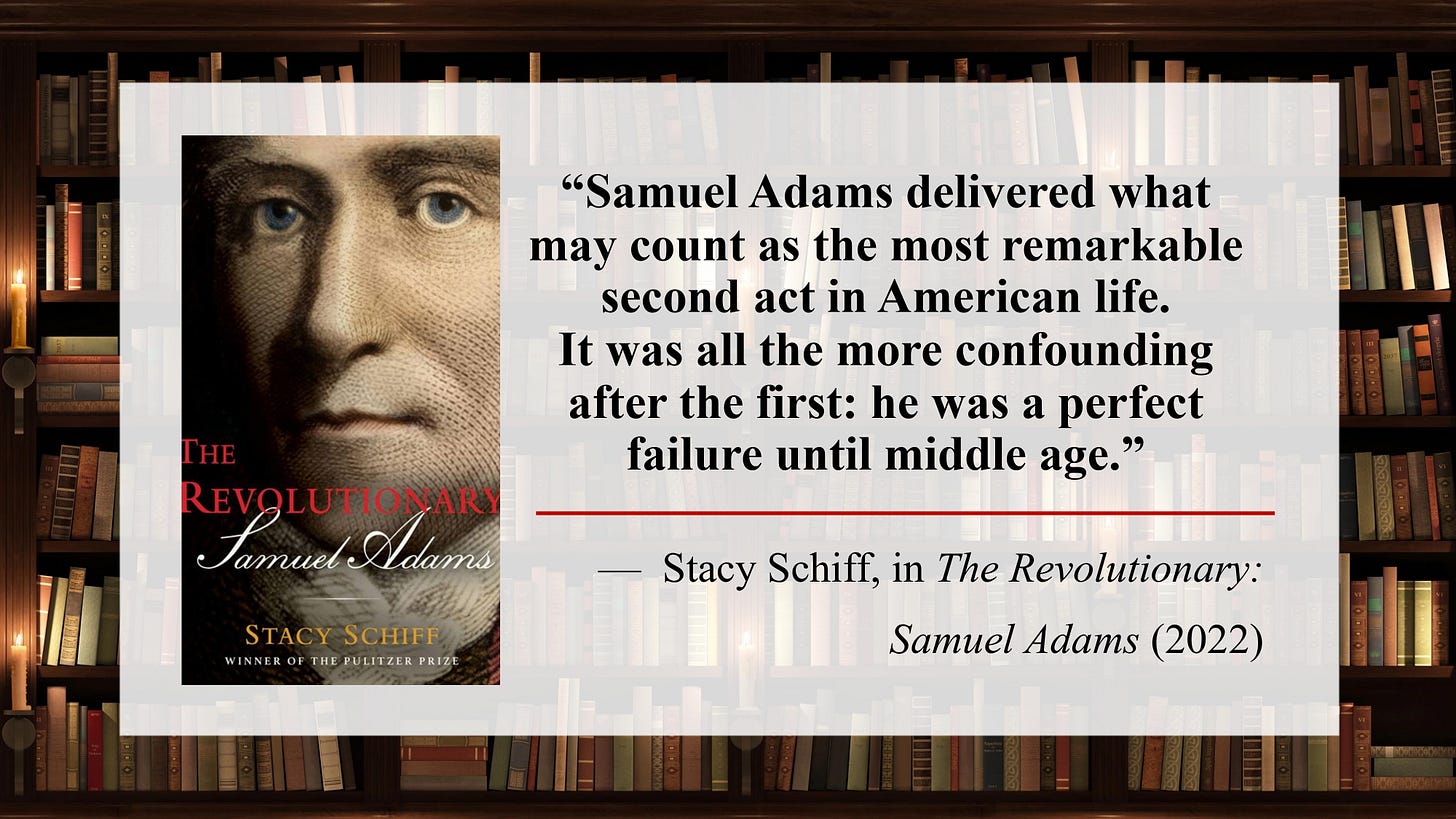Dr. Mardy's Quotes of the Week ("Benefits of Failure")
December 17—23, 2023 | THIS WEEK'S THEME: “The Benefits of Failure”
Opening Line of the Week
Schiff, a Pulitzer Prize-winning historian, begins her Samuel Adams biography with a juicy little tidbit about one of the Revolutionary era’s most influential—and fascinating—figures. I was delighted to honor her opener in my compilation of “The Best Opening Lines of 2022” (see the full list here).
Adams apparently learned many l…
Keep reading with a 7-day free trial
Subscribe to Dr. Mardy's Substack to keep reading this post and get 7 days of free access to the full post archives.



